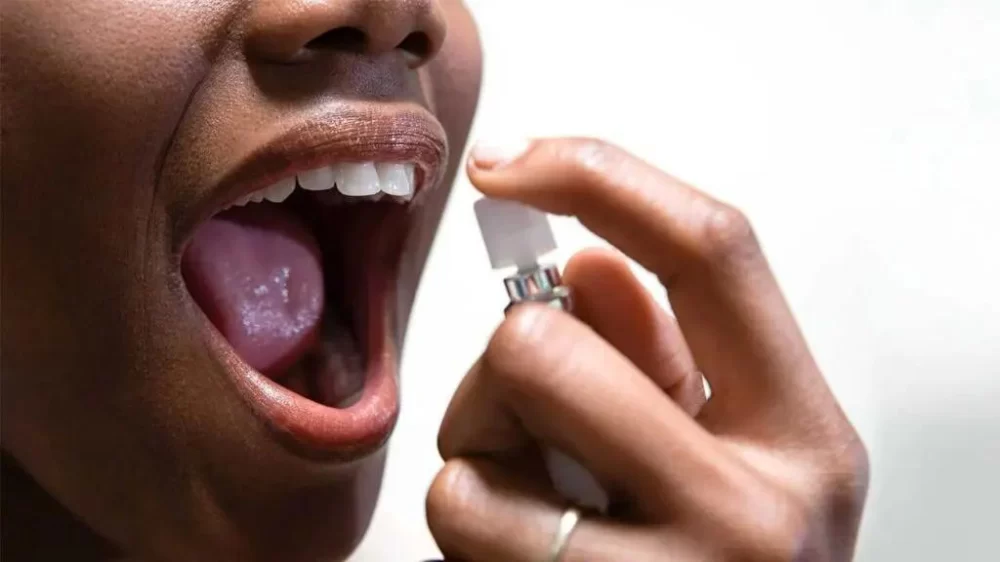
- understanding-the-real-root-of-bad-breath
- diet-changes-that-help-fight-halitosis
- lifestyle-habits-that-impact-your-breath
- oral-hygiene-is-still-non-negotiable
- a-case-study-from-boardroom-to-confidence
- when-bad-breath-calls-for-professional-care
1. Understanding the Real Root of Bad Breath
Bad breath—also known as halitosis—isn’t just an awkward social issue. It’s often a sign that something deeper is going on in your mouth or gut. While poor oral hygiene is a common cause, diet and lifestyle play a much bigger role than most people realize.
Foods high in sulfur compounds, such as garlic and onions, release volatile substances that linger in the mouth and digestive system. On the other hand, dehydration, smoking, and digestive issues can also create a breeding ground for odor-causing bacteria. Addressing bad breath at the root means looking beyond brushing and into the choices you make daily.
2. Diet Changes That Help Fight Halitosis
2.1 Hydration: The First Line of Defense
Drinking plenty of water helps wash away food particles and bacteria in the mouth. A dry mouth is a major contributor to bad breath because saliva is essential for neutralizing acids and cleaning your tongue and teeth. Aim for at least 8 glasses a day—and more if you drink coffee or alcohol regularly.
2.2 Watch the Offending Foods
Onions, garlic, cured meats, and certain cheeses can cause lingering odors. These foods are broken down in your bloodstream and expelled through your lungs, which is why mints don’t always solve the problem. Consider limiting these before important social or work events. Substitute with parsley, mint, or green tea—natural deodorizers that also have antimicrobial properties.
2.3 Sugar and Acidic Foods Feed the Wrong Bacteria
Refined sugar and acidic beverages like soda and energy drinks fuel bacteria that produce foul-smelling sulfur compounds. Switch to low-sugar snacks like nuts, apples, or plain yogurt. Foods rich in fiber can also help by stimulating saliva production and aiding digestion.
3. Lifestyle Habits That Impact Your Breath
3.1 Smoking and Alcohol: The Usual Suspects
Tobacco use dries out your mouth and leaves chemicals that linger long after you finish your cigarette. Alcohol has a similar drying effect and can disrupt your gut microbiome. Quitting smoking and reducing alcohol intake will immediately improve both breath and long-term health.
3.2 Poor Sleep and Stress
Chronic stress and lack of sleep affect digestion and saliva production. If you’ve ever woken up with “morning breath,” you’ve experienced how stagnation in the mouth overnight can intensify bad breath. Creating a nighttime routine that includes proper hydration and breathing through the nose can help.
3.3 Fasting and Keto Breath
Low-carb or keto diets can cause “ketone breath,” a metallic or fruity odor. While it’s not harmful, it can be socially awkward. Drinking more water, chewing sugar-free gum, and using tongue scrapers can help minimize its impact.
4. Oral Hygiene Is Still Non-Negotiable
4.1 Brushing and Flossing Daily
No amount of healthy eating can replace good oral hygiene. Brush twice a day and floss once daily to remove trapped food particles and plaque. Pay extra attention to your tongue—brushing or scraping it can drastically reduce bacterial buildup.
4.2 Mouthwash: Choose Wisely
Not all mouthwashes are created equal. Alcohol-free versions with ingredients like chlorhexidine or zinc are better for long-term use. Avoid overusing mouthwash to mask breath without addressing the root causes.
4.3 Regular Dental Checkups
Even the cleanest mouths can have hidden issues like cavities or gum infections. Schedule professional cleanings at least twice a year. If you're unsure where to start, Dentistry Toothtruth can help you find a dental expert who understands your concerns and provides tailored care solutions.
5. A Case Study: From Boardroom to Confidence
Jason, a 35-year-old marketing director, struggled with persistent bad breath despite daily brushing. After a tough moment during a client presentation, he decided to take it seriously. A consultation with a Dentistry Toothtruth-affiliated professional uncovered the culprit: a combination of acid reflux, frequent coffee, and minimal water intake.
Jason adjusted his diet by cutting back on coffee, adding more green vegetables, and drinking herbal tea. He began rinsing with a zinc-based mouthwash and started chewing sugar-free gum after meals. Within two weeks, the change was noticeable—not only to him but to his colleagues. He even reported more confidence in meetings and social events.
6. When Bad Breath Calls for Professional Care
While many causes of halitosis can be addressed through diet and lifestyle, persistent or severe bad breath could be a sign of something more serious—like gum disease, chronic sinus infections, or digestive disorders. If your bad breath continues despite consistent self-care, it’s time to see a dental professional.
At Dentistry Toothtruth, we connect you with experienced providers who take a holistic view of oral health. Whether it’s identifying hidden infections or advising on lifestyle tweaks, the right expert can help you breathe—and speak—with confidence again.







 Bonanza East Dental4.0 (24 review)
Bonanza East Dental4.0 (24 review) Dr. Laura Zanelli - Long Island Family Dental4.0 (148 review)
Dr. Laura Zanelli - Long Island Family Dental4.0 (148 review) Rialto Dental Park5.0 (1 review)
Rialto Dental Park5.0 (1 review) Yonkers Dental Implants Center4.0 (63 review)
Yonkers Dental Implants Center4.0 (63 review) Kennedy Dental Office4.0 (30 review)
Kennedy Dental Office4.0 (30 review) Park South Dental: Lam Phillip H DMD4.0 (29 review)
Park South Dental: Lam Phillip H DMD4.0 (29 review) The Importance of Oral Health Education During Pregnancy for a Healthy Pregnancy
The Importance of Oral Health Education During Pregnancy for a Healthy Pregnancy Best Tips for Brushing Your Teeth Properly for Healthy Gums: Essential Techniques for Oral Health
Best Tips for Brushing Your Teeth Properly for Healthy Gums: Essential Techniques for Oral Health Why Skipping Dental Checkups Can Lead to Bigger Oral Health Problems
Why Skipping Dental Checkups Can Lead to Bigger Oral Health Problems Advantages of Porcelain Dental Restorations
Advantages of Porcelain Dental Restorations How Can Diabetes Cause Tooth and Gum Problems? Preventing and Managing Oral Health Issues
How Can Diabetes Cause Tooth and Gum Problems? Preventing and Managing Oral Health Issues Healthy Habits for Promoting Good Oral Health and Hygiene: Tips for a Healthy Smile
Healthy Habits for Promoting Good Oral Health and Hygiene: Tips for a Healthy Smile